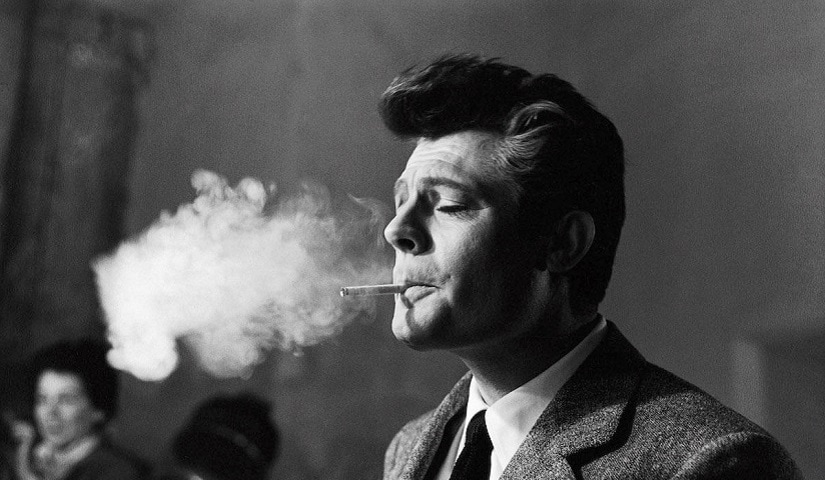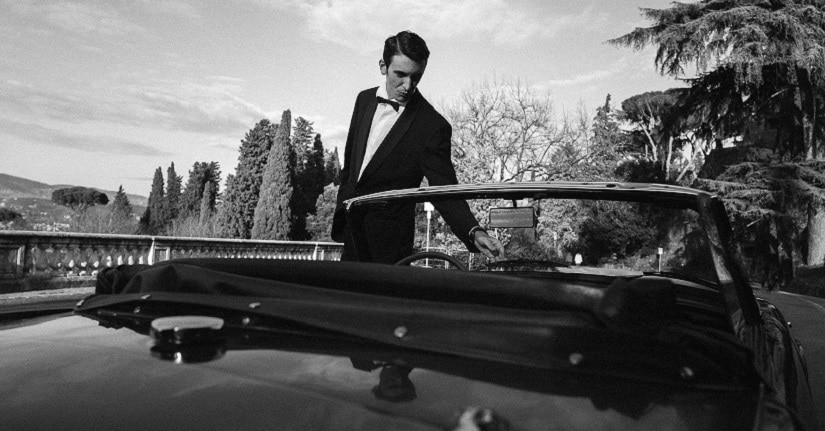Ingmar Bergman died the best possible way, in 2007: peacefully, in his sleep. But seven years earlier, a report in The Guardian stated that the death of his wife from stomach cancer had left the great filmmaker depressed and made him contemplate suicide. Bergman called it “the grimmest thing that happened in my life. It has made an invalid of me. I just think living is a burden. That I will never meet Ingrid again feels devastating.”
“The thing I consider appalling would be to suddenly become a vegetable and a burden on other people. A soul slowly dying out, trapped in a body in which the insides gradually sabotage me I think that would be terrible.” Suicide, he said, would be the only option in such a case. “That’s not idle talk on my part. For me, that would be a completely natural end. I hope I will have enough sense left to have the capacity and opportunity to plan and organise it.”
Two words have dominated the conversations — in the media, on social media, and all around us — in the entertainment beat this week: “suicide” and “depression” .
Many times, in real life, the whys and wherefores remain unknown. These “reasons” go with the person who chose to end their life. Rarely does someone actually talk about it the way Bergman did. (Given his obsession with God and the afterlife, though, this is perhaps unsurprising.)
But movies, by their very nature, give us closure. The narrative/plot gives us the why, the wherefore. Take Federico Fellini’s La Dolce Vita (1960), which follows Marcello, a tabloid journalist, over the period of a week, as he pursues “the sweet life” in Rome. The American critic Pauline Kael did not care for the film, but she nailed what it was about. Clubbing the arthouse sensation with Michelangelo Antonioni’s La Notte and Alain Resnais’s Last Year at Marienbad, Kael said that they were all about “people who are bored, successful and rich… [and who] represent the soul-sickness, the failure of communication, the moral isolation of modern man.”
A simpler (and yes, reductive) term for this may be “existential angst”. Marcello is filled with it. Journalism may pay the bills, but he has literary ambitions. He envies his friend Steiner, a wealthy intellectual who’s everything Marcello wants to be. Steiner reads books on Sanskrit grammar. He can play Bach on the piano. His home is covered with beautiful art, he has a beautiful family, and his parties are filled with beautiful people from around the world. From the outside, Steiner seems… perfect.
[caption id=“attachment_8498191” align=“alignnone” width=“825”]  A still from La Dolce Vita[/caption]
But then, at one of those parties, Marcello discovers that there’s more to Steiner. When Marcello tells him he thinks he’s wasting his life, Steiner replies, “Don’t do what I’ve done. I’m too serious to be an amateur, but not serious enough to be a professional. The most miserable life is better, believe me, than an existence protected by a society where everything is organized and planned for and perfect.”
For each man, the grass is greener… But it’s only when Steiner takes Marcello into his children’s bedroom that the mask really comes off. After looking at his sleeping children, Steiner says, “Sometimes at night, the darkness and silence weigh on me. It’s peace that frightens me… It seems to me it’s just a facade with hell hiding behind it. I think of what my children will see in the future. ‘It will be a wonderful world,’ they say. But how, when a phone call can end it all?”
Eventually, a phone call does end it all. Marcello is at home at night, and when he picks up the phone, he’s summoned to Steiner’s apartment. Racing up the stairs, he discovers that Steiner is dead. It’s suicide. The police ask Marcello if Steiner had any financial problems, if he’d ever shown suicidal tendencies. “I don’t know,” is all Marcello can say about the man he’s always thought of as a friend. Clearly, he didn’t know Steiner very well. The man filled with angst is alive and well, if shattered. The man he wanted to be, the man whose “perfect” life he envied, has shot his children dead and then turned the gun on himself.
[caption id=“attachment_8498211” align=“alignnone” width=“825”]  A still from La Dolce Vita[/caption]
In a 1962 radio programme, Fellini and his actors spoke about the character and why Steiner killed himself. One reason is that “he must be destroyed”. He is an intellectual. He doesn’t belong in this shallow world, the “sweet life” that the title suggests: a world where an actress is worshipped like a goddess by camera-clicking devotees, a world where two children say they saw the Madonna and this “news” sets off a tabloid frenzy, a world where sensationalism is the only thing that sells. And because Steiner’s children will be brought up in his image (they already worship words and art and the beauty of flowers), they must be “destroyed”, too.
And with this, Marcello’s hope of becoming somebody like Steiner, somebody literary and lofty and not just a tabloid journalist, is destroyed, too. The destruction of high-minded dreams, the destruction of intellectualism, the destruction of ideals: how prescient all this seems from today, from this world around us where sensationalism is everything. Fittingly, La Dolce Vita also gave us the word “paparazzi” in the intrusive, invasive sense we recognise it today. (In the film, Marcello’s photographer friend is called Paparazzo.)
Of course, a character cannot exist only in such an abstract sense. Within the confines of the film, he also has to be a flesh-and-blood person, who gives us “clues” about his condition, things that we can look back on later and say: “Ah, so there were the signs that this was coming…” One such clue comes when an admirer likens Steiner to the spire of a cathedral. “You’re so tall that no voices can reach you up there.” Steiner replies, “Really? If you could see my real height, you’d see I’m no taller than this.” It’s another reminder that there’s sometimes no connection between what we see of people and what they see of themselves.
Baradwaj Rangan is Editor, Film Companion (South).
All images from Facebook.


)
)
)
)
)
)
)
)
)



